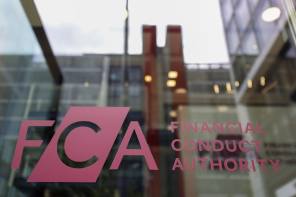

Cash has a wide range of uses for clients, in addition to placing it in a savings account for a rainy day.
“It plays an important role in any portfolio, both as a low-risk asset providing balance and peace of mind when equity markets are volatile, or as clients move towards retirement and increasingly want to derisk their portfolio,” says Simon Merchant, co-founder and chief executive of Flagstone.
Jonathan Cooper, head of paraplanning at Drewberry, also highlights its versatility: “Within any investment vehicle, at portfolio level, an element of liquidity is required as it applies the ‘grease’ to allow the efficient repositioning of a portfolio and its asset allocation, as well as to provide a pool of resource to exploit perceived investment opportunities.
“Cash as an asset class in its own right is also important due to its negative correlation with other asset classes and its ability to derisk and provide stability.”
It is also needed to pay for the costs associated with investment, Cooper adds: “An element of cash is often a necessity, particularly with modern pension and platform accounts, which require a cash balance to cover the day-to-day running costs."
Ross Leckridge, associate director at Johnston Carmichael Wealth, emphasises the importance of cash too: “Cash can always be useful as part of a risk-management strategy and there should always be a sensible level of cash holdings retained for clients.
“In our advice process, we often use cash flow planning, which helps to show how clients’ overall assets might fall in times of a market crash.
"This is a useful tool in assessing a client’s capacity for loss and subsequently how much cash should be held on deposit to derisk the portfolio."
Leckridge adds: “When we have clients in drawdown in their pension, cash plays a key role. In order to ensure that their short-term income needs are affected as little as possible by a market fall, we hold two years’ worth of income in cash and a further two years’ worth in a lower risk investment.
“This means that clients can continue to take monthly withdrawals to provide the income they need without having to sell any shares or units in the underlying investments for up to two years.
"When markets recover, an ad-hoc disinvestment can be carried out to replenish the cash reserves.”
Fiona Tait, technical director at Intelligent Pensions, also stresses the importance of cash when it comes to pensions: “With interest rates so low, we have to consider the fact that holding cash creates a significant drag on investment performance.
"However, it does also provide a certainty that no other asset class can deliver. We therefore use cash as insurance rather than an investment, providing protection against short-term loss in periods of market volatility.
“This is obviously useful where a client is taking income from their pension plan and needs to know that the money will be available to cover their expenses.
"For most clients in this situation, we look to secure two to three years’ worth of income in cash with the remainder of the portfolio invested for growth, based on their individual risk profile and overall asset allocation.
"Ensuring that the income needs of the client are covered then makes it possible to increase the risk on the growth part of the portfolio and achieve potentially greater returns when markets do well.”
FCA concerns
But holding cash can also have its disadvantages, as Scott Gallacher, director and chartered financial planner at Rowley Turton, says: "There is a downside of holding cash and that’s the opportunity cost; if you’re holding cash, it’s not invested.”
This is a point that the Financial Conduct Authority is keen to highlight, as Jason Hollands, managing director – corporate affairs at Tilney Smith & Williamson, observes: “The reality is that too many people are holding way too much cash for long periods of time. Indeed, the FCA has recently launched a campaign because it is concerned that too many people are missing out on investment returns because they hold too much cash.”
In September, the FCA announced a campaign to tackle investment harm, reporting that nearly 9m people were holding more than £10,000 of investible assets in cash.
It highlighted the problem of people missing out on investment earnings, due to the amount of cash held.
The regulator has other concerns about cash, including with regard to the risks associated with the rising volume of deposits placed with banks and building societies through deposit aggregators.
It wrote a 'Dear CEO' letter to deposit aggregators in April this year, outlining the responsibilities they would be held accountable for.
As Merchant explains: “As part of its Platform Market Study in 2019, the FCA looked closely at how clients are holding cash on platforms. It found that cash represented 8.8 per cent of direct-to-consumer assets and 3.9 per cent of advised assets under administration.
“However, when held on an advised investment platform (rather than a cash deposit platform), cash can be subject to the same annual management charge as any other asset, despite potentially earning no return for the client.
"On some advised platforms, this means cash held in a client’s self-invested personal pension can actually result in a negative rate of up to -0.40 per cent. Holding funds on a cash deposit platform instead allows the client to maximise the returns on their cash.”
Referring to the FCA’s letter, Merchant adds: “We saw this as welcome recognition that cash deposit platforms are a growing sector, and that regulators are ensuring best practice is followed.”
Fiona Nicolson is acting deputy features editor at FTAdviser




.png)
